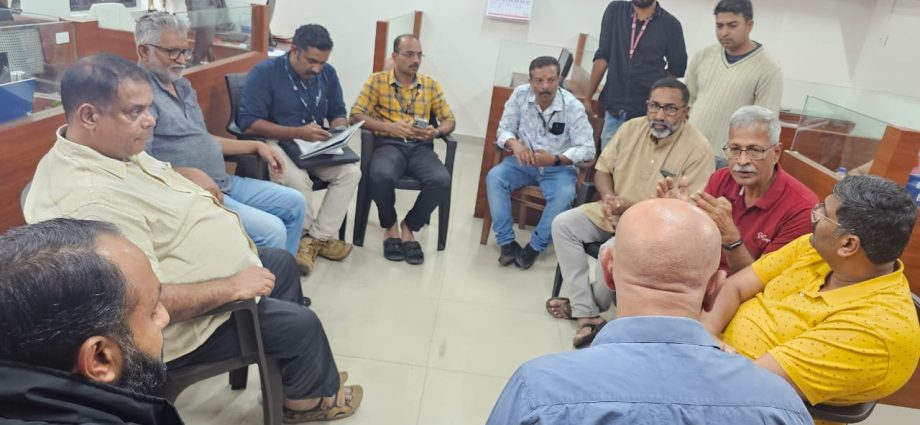By Thomas Scaria
Kalpeta, Aug 6, 2024: Various dioceses, religious congregations, and laity groups have formed a task force with Hindus and Muslims to implement short term and long term rehabilitation plans for the landslide survivors in Kerala’s Wayanad district.
The hilly district on July 30 witnessed one of the “worst ever landslides” in the southern Indian state that killed more than 400 people and wounded many others. More than 2,000 people are in the camps.
The interreligious “Wayanad Relief Group has decided to make temporary family shelters as an immediate step and then build permanent houses eventually.
The group headed by Claretian Father George Kannanthanam has visited the affected areas, relief camps and victims’ families to make a rapid assessment of the situation and identify immediate priorities.
The group under parish priest Father Mathew Periappuram’s coordination then met at St. Vincent De Paul Forane Church, Kalpeta, a major town in the district, to review the situation.
Among the more than 40 participants were the representatives of religious congregations, Mananthavady Syro-Malabar diocese and Latin Archdiocese of Bangalore and diocese of Calicut.
The team has also met District Collector D R Meghashree and briefed her about its proposed plan and pledged full support to the government proposal for building an exclusive township with all amenities for the victims.
The group observed that people, who are now living in temporary shelters such as schools, have to be settled back to their communities .
“This process of permanent settlement with houses and other amenities will take minimum three years, and therefore, there is a need for temporary arrangements,” Father Kannanthanam told Matters India August 6.
While some participants suggested building community shelters for several families others said the survivors should be given exclusive facilities to stay as families.
“Therefore, it is required to create transitional houses meanwhile, so that they can stay as families and can carry on with regular life,” the meeting recommended who studied various models for a cost-effective pre fab houses of about 200 square feet with a kitchenette and toilet costing about 300,000 rupees.
The group also decided to propose the plan to the government and offer to undertake its implementation while the government and other NGOs build permanent houses.
Some members also have suggested to develop an education fund to support the children who lost their school and arrange counseling facilities for them. Around 53 students were killed in the landslides and several now stay in relief camps. Some have lost their parents, siblings or relatives.
The group also observed that offers have come from corporate groups and the governments to build more than 500 permanent houses. “There is no scarcity of funds. So, we should make sure each house will be decent enough with at least 700-800 sq ft size with all amenities,” the group said.
A new house will cost around 1.5 million rupees and those sponsoring houses should also involve in their planning and implementation too. The group proposed to involve the beneficiaries also in the planning.
The group suggested creation of a coordination committee, involving members and experts, nominated from all concerned agencies, to ensure that the best ideas and practices are incorporated in the process.










